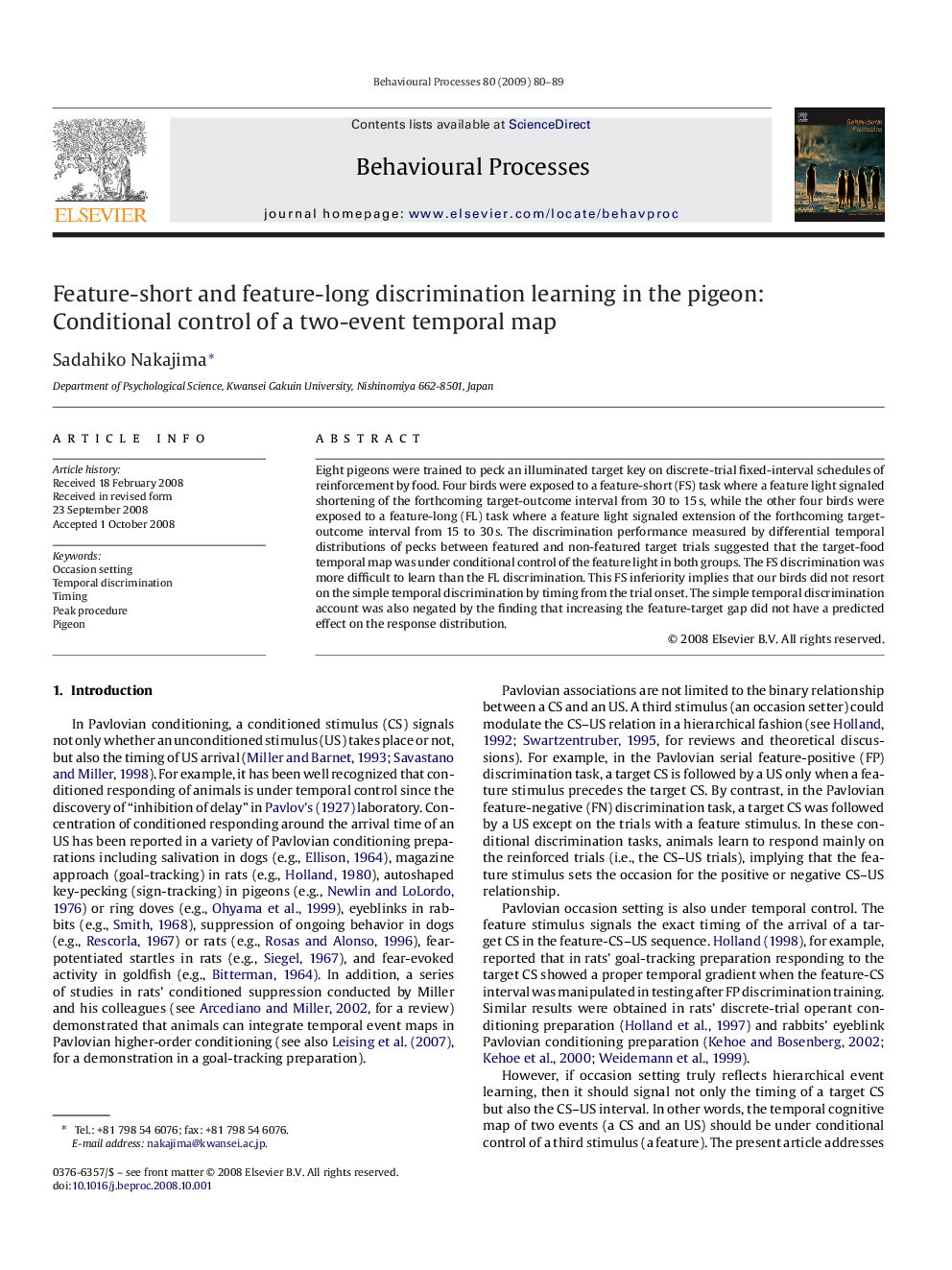| Article ID | Journal | Published Year | Pages | File Type |
|---|---|---|---|---|
| 2427578 | Behavioural Processes | 2009 | 10 Pages |
Eight pigeons were trained to peck an illuminated target key on discrete-trial fixed-interval schedules of reinforcement by food. Four birds were exposed to a feature-short (FS) task where a feature light signaled shortening of the forthcoming target-outcome interval from 30 to 15 s, while the other four birds were exposed to a feature-long (FL) task where a feature light signaled extension of the forthcoming target-outcome interval from 15 to 30 s. The discrimination performance measured by differential temporal distributions of pecks between featured and non-featured target trials suggested that the target-food temporal map was under conditional control of the feature light in both groups. The FS discrimination was more difficult to learn than the FL discrimination. This FS inferiority implies that our birds did not resort on the simple temporal discrimination by timing from the trial onset. The simple temporal discrimination account was also negated by the finding that increasing the feature-target gap did not have a predicted effect on the response distribution.
